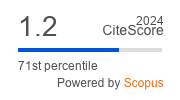Language Use and Identity Among Migrant Roma
DOI:
https://doi.org/10.29038/eejpl.2019.6.1.hkyKeywords:
language use, ethnicity, identity, acculturation, Roma.Abstract
The paper presents the issue of language use and identity among Muslim Roma youth from Bulgaria, living in Berlin, Germany. Interviews with a structured questionnaire on language use and identity was conducted with Bulgarian Muslim Roma living in Berlin, Germany. The results showed that, in order to be accepted by the German Turks, Bulgarian Muslim Roma youth change their language use and identity from Muslim Roma to a new identity - Bulgarian “Osmanli” Turks. The findings showed that the change of language and identity among young Roma in this study served as strategies for integration and acceptance in the German society.
References
- Bailey, B. (2001). The language of multiple identities among Dominican Americans. Journal of Linguistic Anthropology, 10(2), 190-223.
- Berry, J. (1997). Immigration, acculturation and adaptation. Applied Psychology: An International Review, 46, 5-36.
- Bleich, E. (2009). Where do Muslims Stand on Ethno-Racial Hierarchies in Britain and France? Evidence from Public Opinion Surveys, 1998-2008; 43, 379-400.
- Brizic, K. (2006). The secret life of a languages. Origin-specific differences in L1/L2 acquisition by immigrant children. International Journal of Applied Linguistics, 16(3), 339-362.
- Broeder, P. & Extra, G. (1995). Ethnic identity and community languages in the Netherlands In: Sociolinguistica – International Yearbook of European Sociolinguistics/ Internationales Jahrbuch für europäische Soziolinguistik, 9, 96-112.
- Dimitrova, R., Ferrer-Wreder, L. (2017). Positive Youth Development of Roma Ethnic minority Across Europe. In: Handbook on positive development of minority children and youth (pp. 307-320). N. Cabrera & B. Leyendeker, (Eds.). New York: Springer
- Erikson, E. (1964). Childhood and Society. New York: W. W. Norton & Company.
- Fishman, J. (1998). Language and ethnicity: The view from within. In: The Handbook of Sociolinguistics. (pp. 327-343). F. Coulmas (Ed.). Oxford: Blackwell.
- Fought, C. (2006). Language and ethnicity. Cambridge: Cambridge University Press.
- Giles, H. (ed.) (1984). The Dynamics of speech accommodation. International Journal of Sociology of Language, 46, 1-155
- Giray, B. (2015). Code-switching among Bulgarian Muslim Roma in Berlin. In: Ankara Papers in Turkish and Turkic Linguistics. (pp. 420-430). D. Zeyrek, C.S. Șimșek, U. Ataș and J. Rehbein (Eds.). Wiessbaden: Harrassowitz Verlag.
- Kivisto, P. (2013). (Mis)Reading Muslims and multiculturalism. Social Inclusion, 1, 126-135.
- Kyuchukov, H. (2016). The Turkish in Berlin spoken by Bulgarian Muslim Roma. Ural-Altaic Studies, 22, 7-12.
- Kyuchukov, H. (2007). Turkish and Roma children learning Bulgarian. Veliko Tarnovo: Faber.
- Larson, R. W. (2000). Toward a psychology of positive youth development. American Psychologist, 55, 170-183.
- Lerner, R. Et al. (2005) Positive youth development. A view of the issues. Journal of Early Adolescence, 25(1), 10-16.
- Lerner, R., Dowling, E., Anderson, P. (2003) Positive youth development: Thriving as the basis of personhood and civil society. Applied Developmental Science, 7(3), 172-180.
- Marushiakova, E. & Popov, V. (2004). Muslim Minorities in Bulgaria. In: Migration and Political Intervention: Diasporas in Transition Countries. (pp. 18-32). Blaschke, J. (Ed.). Berlin: Parabolis.
- Merton, R. (1968). The Matthew effect in Science. Science, 159(3810), 56-63.
- Ochs, E. (1993). Constructing social identity: a language socialization perspective. Research on Language and Social Interaction, 26, 287-306.
- Organista, P. B, Marin, G., Chun, K. M. (2010). The psychology of ethnic groups in United States. London: SAGE Publication.
- Padilla, A., Perez, W. (2003). Acculturation, social identity and social cognition: A new Perspective. Hispanic Journal of Behavioral Sciences, 25, 35-55.
- Peoples, J., Bailey, G. (2010). Humanity: An Introduction to Cultural Anthropology (9th ed.). Belmont, CA: Wadsworth Cengage learning.
- Rovira, L. (2008). The relationship between language and identity. The use of the home language as a human right of the immigrant. Revista Interdisciplinar da Mobilidade Humana, XVI (31), 63-81.
- Tajfel, H. Turner, J.C. (1986). The social identity theory of intergroup behavior. In: Psychology of Intergroup Relations (pp. 7-24). Worchel, S. & Austin, W. G. (Eds.). Chicago: Nelson-Hall.
- Tabouret-Keller, A. (1998). Language and identity. In: The Handbook of Sociolinguistics. (pp. 315-326). F. Coulmas (Ed.). Oxford: Blackwell.
- Trudgill, P. (1992). Ausbau sociolinguistics and the perception of language status in contemporary Europe. International Journal of Applied Linguistics, 2, 167-178.
Downloads
Download data is not yet available.
Downloads
Published
2019-06-30
Issue
Section
Vol 6 No 1 (2019)
How to Cite
Kyuchukov, H., & Samuilov, S. (2019). Language Use and Identity Among Migrant Roma. East European Journal of Psycholinguistics , 6(1), 47-57. https://doi.org/10.29038/eejpl.2019.6.1.hky












 Creative Commons «Attribution» 4.0
Creative Commons «Attribution» 4.0